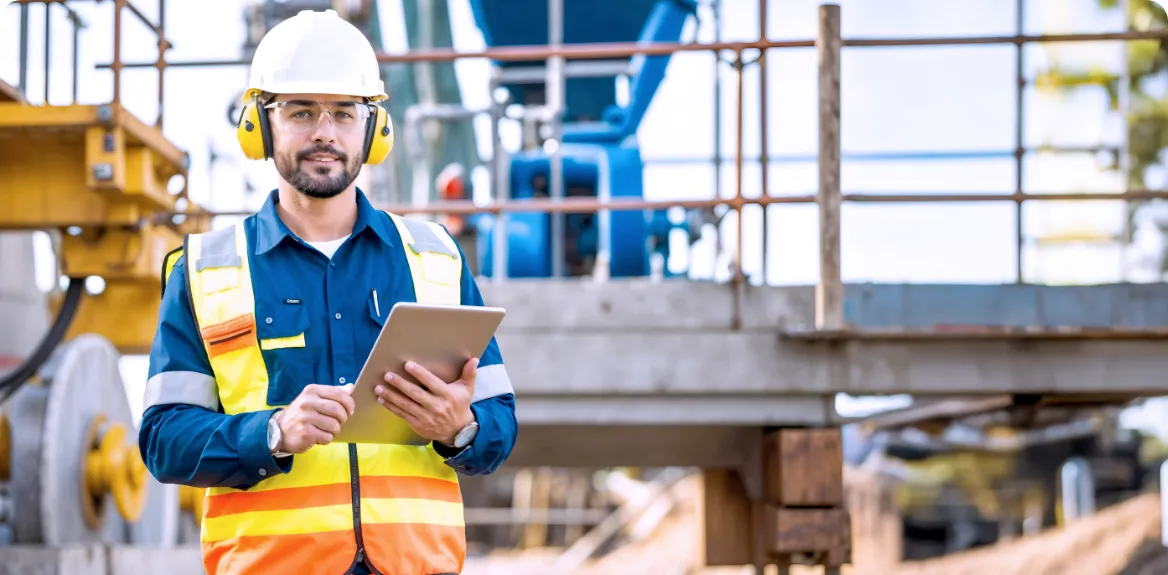Construction management services: A guide to successful projects
by
Metam technologies

Abstract
Construction management ensures project success by coordinating resources, mitigating challenges, and delivering efficient results. It highlights the importance, core services, and strategies for overcoming challenges while exploring the future of consulting in this field.
Table of Content
What is construction management?

Why are construction management services important?

What are the key services offered by construction project management firms?

How to choose the right construction management services firm?

Common challenges in construction management and how dedicated services overcome them?

Construction management services strategies to overcome challenges

The future of construction management consulting services

The complexity of construction projects demands a high level of expertise and meticulous planning. Construction management services (CMS) play a pivotal role in ensuring projects are delivered on time, within budget, and to the required quality standards. Whether overseeing a commercial building, residential development, or large-scale infrastructure project, construction management services are essential to achieving project success.
According to the Project Management Institute, nearly 60% of construction projects experience budget overruns, highlighting the critical importance of effective management throughout the project lifecycle.
This article explores the importance of construction project management services, the specific services offered, and the strategies and technologies that help mitigate risks, improve efficiency, and ensure successful project outcomes. Designed for professionals in the construction industry, this guide will provide valuable insights into how effective construction management can transform a project from a concept to a successful completion.
What is construction management?
Construction management (CM) is a specialized field dedicated to overseeing the planning, execution, and completion of construction projects. This involves a comprehensive range of tasks such as budgeting, scheduling, quality control, risk management, and stakeholder coordination. Construction managers play a critical role in ensuring projects are delivered on time, within budget, and to the highest quality standards. By implementing effective strategies and leveraging industry best practices, construction managers minimize risks, optimize resource allocation, and maximize project profitability.
A professional construction project management firm acts as a strategic partner, guiding the project from initial concept to final delivery, while ensuring it stays on track regarding scope, cost, and timeline. This approach increases the likelihood of success by optimizing the use of all resources.
Why are construction management services important?
Construction management services (CMS) are integral to the successful execution of any construction project.
The following are key reasons why these services are indispensable:
- Cost control and budget management: One of the main challenges in construction is staying within budget. Construction managers closely monitor spending at every stage of the project, identifying areas for cost savings while ensuring quality standards are not compromised. A detailed cost analysis at the planning stage can help mitigate budget overruns and keep financial resources in check.
- Timely project delivery: Meeting deadlines is crucial in the construction industry. Delays can result in significant financial penalties and damage to reputations. Construction managers develop and enforce strict schedules, ensuring that all stages of the project are completed on time.
- Risk mitigation: Unforeseen circumstances such as changes in regulations, labor shortages, or unexpected weather conditions can derail a project. A seasoned construction manager proactively identifies risks and implements strategies to minimize their impact, helping to keep the project on course.
- Quality assurance: Ensuring that the project meets or exceeds industry standards is crucial. Construction managers implement quality control measures and conduct regular inspections to guarantee that the work complies with all regulations, building codes, and specifications.
- Stakeholder communication and coordination: Effective communication between all parties involved clients, contractors, suppliers, and designers, is key to the success of a project. Construction managers facilitate this communication, ensuring that all parties are aligned and informed throughout the project.
- Resource optimization: Construction management services ensure the efficient use of resources, from labor to materials. By optimizing resource allocation and minimizing waste, project managers help reduce costs while maintaining high standards of productivity and quality.
- Regulatory compliance: Navigating the complex landscape of local laws, building codes, and environmental regulations is essential in construction. Construction managers are well-versed in legal requirements and ensure that all aspects of the project adhere to applicable regulations, preventing costly legal issues down the line.
What are the key services offered by construction project management firms?
Construction management firms offer a wide range of services, tailored to meet the specific needs of each project. These services cover the entire lifecycle of a construction project, from pre-construction through to post-construction.
1. Pre-construction services
- Feasibility studies and site analysis: Construction managers assess the viability of the project, considering factors such as location, environmental conditions, and available resources. These studies help identify potential challenges early in the process.
- Budgeting and cost estimation: Accurate cost forecasting is essential for avoiding financial setbacks. Construction managers create detailed cost estimates and budget plans to ensure that the project remains financially viable.
- Scheduling and project planning: Construction managers develop detailed schedules, outlining every stage of the project. This includes setting realistic timelines for material procurement, labor allocation, and construction milestones.
- Procurement and contract management: From selecting suppliers to negotiating contracts, construction managers handle the procurement process, ensuring that materials and labor are sourced at competitive rates.
- Risk assessment and management planning: Construction managers conduct risk assessments to identify potential issues that could arise during the project. They then develop risk mitigation strategies to address these challenges proactively.
- Environmental impact assessment: Construction managers evaluate the environmental implications of the project, ensuring that it complies with local regulations and sustainability goals. This includes waste management, energy usage, and minimizing the ecological footprint of the project.
- Stakeholder engagement and communication: Effective communication is key in the pre-construction phase. Construction managers facilitate discussions with stakeholders, including clients, local authorities, and community members, to ensure that their concerns are addressed and expectations are aligned.
2. Construction phase services
- Project oversight and management: Construction managers are responsible for the day-to-day management of the construction site. This includes coordinating labor, overseeing subcontractors, and managing contractors to ensure the project is executed according to plan.
- Quality control and inspections: Regular inspections are conducted to ensure that the work complies with industry standards and regulations. Quality assurance is a continuous process, ensuring that each phase of construction meets the established criteria.
- Safety management: The construction site must adhere to safety protocols to protect workers and avoid accidents. Construction managers are responsible for enforcing safety regulations and ensuring a safe working environment.
- Cost tracking and budget management: Throughout the construction phase, the construction manager monitors costs, tracks expenditures, and makes necessary adjustments to ensure the project remains within budget.
- Schedule monitoring and adjustments: Construction managers continuously monitor project timelines to ensure that work progresses according to schedule. If delays occur, they adjust the project plan to minimize the impact on overall completion time.
- Subcontractor coordination and management: Managing subcontractors is crucial to ensure that all specialized work is completed on time and to the required standards. Construction managers handle contract negotiations, supervise subcontractor performance, and ensure alignment with the project’s objectives.
- Stakeholder communication and reporting: Maintaining clear and regular communication with stakeholders, such as clients, architects, and project owners, is essential. Construction managers provide updates on progress, address concerns, and ensure transparency throughout the construction phase.
- Change order management: During the construction phase, unforeseen issues may require changes to the scope of work. Construction managers handle change orders by assessing the impact on cost, schedule, and quality, ensuring proper documentation and approvals are obtained.
3. Post-construction services
- Commissioning and handover: Once the project is completed, construction managers coordinate the final inspection, ensuring that the building is functional, operational, and meets all necessary regulatory requirements before being handed over to the client.
- Maintenance and warranty services: Post-construction services often include ongoing support, such as maintenance and warranty management, to address any issues that arise after the project is completed.
- As-built documentation and record keeping: Construction managers ensure that all final project documents, including drawings, manuals, and warranties, are compiled and handed over to the client. This documentation reflects any changes made during the construction process and serves as a reference for future maintenance or renovations.
- Post-project evaluation: After the completion of the project, construction managers conduct an evaluation to assess the project’s overall success, identify lessons learned, and gather feedback from all stakeholders. This evaluation helps improve future projects and the performance of the construction team.
- Deficiency management and rectification: Construction managers oversee the process of identifying and correcting any issues or defects that arise after project completion. They ensure that any deficiencies are addressed within the warranty period, maintaining the quality of the final deliverable.
How to choose the right construction management services firm?
Selecting the right construction management firm is one of the most important decisions to make for the success of a project. A competent and reliable firm can ensure that the project is completed on time, within budget, and to the highest standards. With numerous firms offering similar services, it's essential to carefully evaluate potential partners to find the one that aligns with the project’s specific needs and goals.
Here are key factors and tips to consider when choosing the suitable partner for a construction project:
Construction project management services : Key considerations
- Experience and specialization: It is essential to choose a firm with experience in the specific type of construction project being undertaken. Whether it’s residential, commercial, or industrial, a specialized firm will have the necessary expertise to navigate the unique challenges of the project.
- Reputation and track record: Look for firms with a proven history of successful projects. Client testimonials, case studies, and portfolio reviews are important indicators of a firm’s capabilities.
- Licensing and certifications: Ensure the firm holds all the necessary licenses and certifications required in the region. This ensures compliance with local laws and regulations and guarantees a high standard of work.
- Insurance and liability coverage: Adequate insurance coverage is vital to protect the project against potential liabilities. Verify that the firm carries the appropriate level of insurance for both workers and the construction project itself.
- Project management tools and technologies: Choose a firm that leverages modern project management software and technologies, such as Building Information Modeling (BIM), which can improve project coordination and efficiency.
- Communication and collaboration skills: A construction manager's ability to facilitate clear and consistent communication among stakeholders, including clients, contractors, and suppliers, is crucial for smooth project execution. Look for firms that emphasize collaboration and transparency throughout the process.
Construction project management services : Evaluation tips
- Request detailed proposals: Ask for a comprehensive proposal that outlines the firm’s approach, timeline, and estimated costs. This will give insight into their work style and how they plan to handle the project.
- Check references: Contact previous clients to learn about their experiences. This feedback can help gauge how the firm handles challenges and whether they deliver on their promises.
- Assess the Firm’s project management approach: Evaluate how the firm manages projects, from scheduling to risk management. A firm with a well-defined process for monitoring progress and addressing issues will be more likely to keep the project on track.
- Evaluate sustainability practices: Consider the firm’s approach to sustainable construction and environmental responsibility. A firm that incorporates green building practices and energy-efficient solutions may be more aligned with long-term goals.
- Understand dispute resolution process: It's important to know how the firm handles conflicts or disputes that may arise during the project. Look for a firm that has a clear process for resolving issues efficiently to avoid delays and cost overruns.
Common challenges in construction management and how dedicated services overcome them?
Construction management services (CMS) play a critical role in proactively resolving challenges, ensuring projects stay on track and meet their goals.
Construction projects, even with meticulous planning, are susceptible to a variety of challenges that can arise unexpectedly. Successful construction management involves identifying and addressing these issues.
Common construction project management challenges
- Budget overruns: Cost overruns are common in construction. Effective budgeting, cost monitoring, and risk management can help mitigate this issue and ensure that the project stays within its financial limits.
- Delays: Delays caused by weather, supply chain issues, or labor shortages can push project timelines beyond their deadlines. Construction managers use proactive scheduling and regular project reviews to minimize delays and identify solutions quickly.
- Supply chain issues: Construction projects rely heavily on materials, which can be affected by supply chain disruptions. Construction managers establish backup plans and ensure alternative suppliers are available if needed.
- Labor shortages: A shortage of skilled labor can impact project timelines and quality. Construction managers manage staffing levels, anticipate labor needs, and may implement training programs to fill gaps.
- Safety risks: Construction sites are inherently risky. A strong focus on safety, including regular safety audits and compliance checks, is critical to avoid accidents and keep the project running smoothly.
- Communication breakdowns: Poor communication between stakeholders can lead to misunderstandings, delays, and errors. Construction managers ensure clear and consistent communication across all teams, keeping everyone aligned on project goals and progress.
- Regulatory compliance: Navigating changing laws and regulations can be a challenge for construction projects. Construction managers stay informed about relevant legal requirements and ensure the project complies with all local, state, and federal regulations.
- Quality control: Maintaining high-quality standards throughout the construction process can be difficult, especially with numerous contractors and subcontractors involved. Construction managers implement quality control measures to ensure the work meets industry standards and project specifications.
Construction management services strategies to overcome challenges
- Implementing technology: The use of digital tools, including project management software and solutions, IoT, and AI, can help track progress, improve decision-making, and reduce human error.
- Robust risk management plans: Construction managers should develop detailed risk management strategies that include contingencies for unforeseen challenges.
- Fostering strong communication: Effective communication between contractors, subcontractors, clients, and suppliers ensures that potential issues are addressed early, reducing their impact.
- Regular project reviews and updates: Conducting frequent progress reviews and updating project schedules and budgets regularly helps to identify potential risks early and ensures that corrective actions are taken promptly.
- Collaboration with experienced subcontractors: Partnering with trusted and experienced subcontractors can significantly reduce risks associated with poor workmanship, delays, or mismanagement. Selecting reliable partners with a proven track record is key.
- Enhancing workforce training and development: Investing in ongoing training for the workforce can help address labor shortages, improve safety standards, and ensure high-quality workmanship throughout the project.
The future of construction management consulting services
Construction management services and consulting are integral to the success of any construction project. Partnering with the right firm that adopts advanced strategies allows construction managers to effectively address industry challenges, streamline processes, and enhance overall project outcomes.
As the industry evolves, staying ahead of emerging trends and innovations will be key to maintaining a competitive edge and delivering successful, high-quality projects on time and within budget. The future of construction management consulting is one where technology and expertise come together to drive greater efficiency, reduce risks, and optimize overall project performance.

Construction compliance...
This article explores the transformative role of compliance automation in construction health and safety management,...



